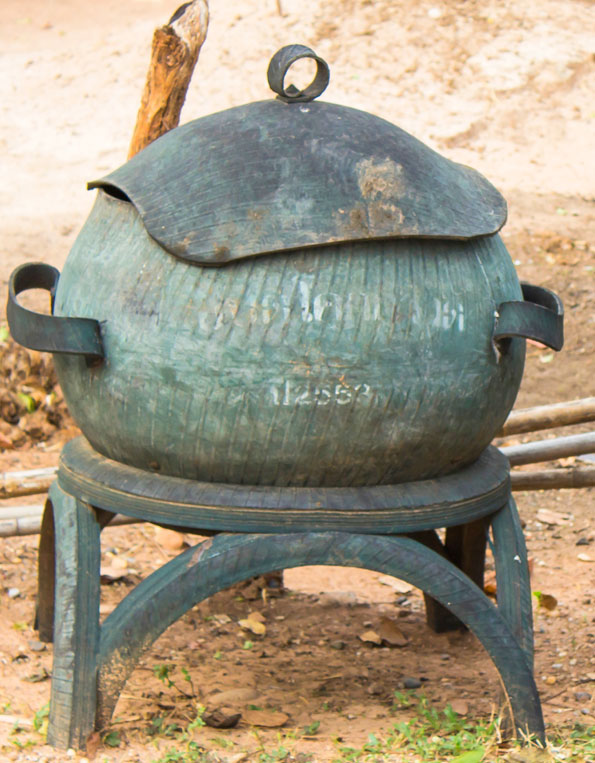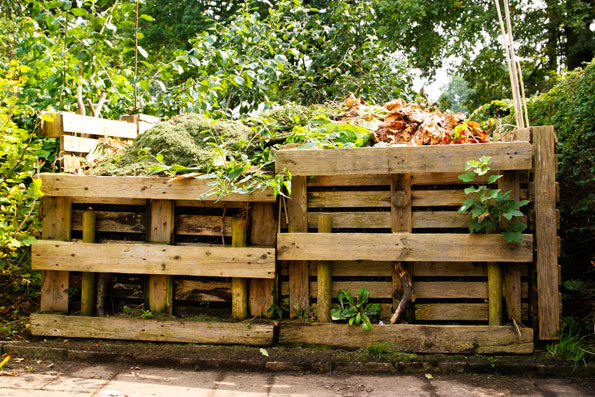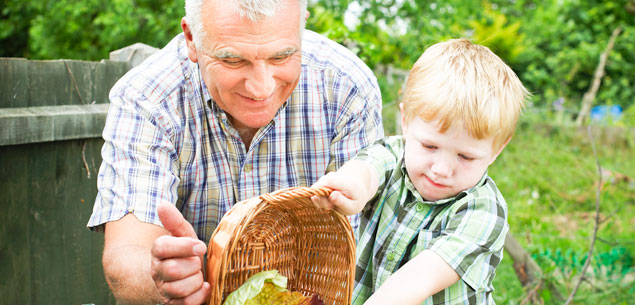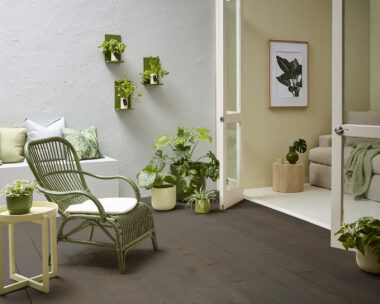I’d always been a bit put off having a compost bin by the fact that we also had a dog.
If there’s one thing our canine loved more than me, it was anything old, putrid, rotting or, at the very least, foul-smelling – ergo, compost.
However, I was also loath to buy compost from a garden centre for $5 a bag, while we were shelling out to the local refuse company to dispose of our food and garden waste.
And in truth, we don’t have a mountain of kitchen scraps to donate to the compost bin because one of us is hungry and the other is greedy, but we always have a mountain of garden waste.
The Partner was keen on a black plastic compost bin, but I wanted something environmentally friendly and good-looking, of course.

I won, but only because we were short of cash at the time and figured we could make something cheaper than we could buy it.
A collection of vintage timber and several pallets that were hiding behind the shed supplied nearly everything we needed in terms of materials. The Partner added building skills and I then contributed style advice.
We dismantled the pallets and reassembled them into a perfectly functional and quite attractive compost bin that sits neatly behind the vegetables. I wasn’t allowed to decorate the front with ceramic tiles.
It took us about three hours to build, and another 30 minutes to ask Google what to put in it. Making compost can be as scientific or simple as you like. There are hundreds of books on the subject, probably millions of recipes on the internet, and many instructions and tips for the building of your bin or bins.

• As stylish as it may be, place the bin a good distance from the house (it will smell) and out of any direct sunlight.
• Put a layer of small twigs in the bottom for good drainage – important if your bin is sitting on the dirt.
• Put in your materials in layers no more than 15cm deep.
• Cover the heap to keep the smells in and the animals out.
• Throw over a handful of garden lime every few layers.
• Keep the heap moist in summer, but don’t drench it or you’ll end up with a mess.
• Turn your compost in the heap as often as you can remember (at least once a week is ideal) to speed up the process. Compost takes about 3-4 months to mature.
• While it’s doing that, build another compost bin beside it and get that underway before you are again overwhelmed by your kitchen scraps.
One day, you’ll push the spade into your heap and discover that under the surface, it’s turned into soft, friable, worm-rich soil. You’ll know it’s ready when the dog no longer wants to eat it.




